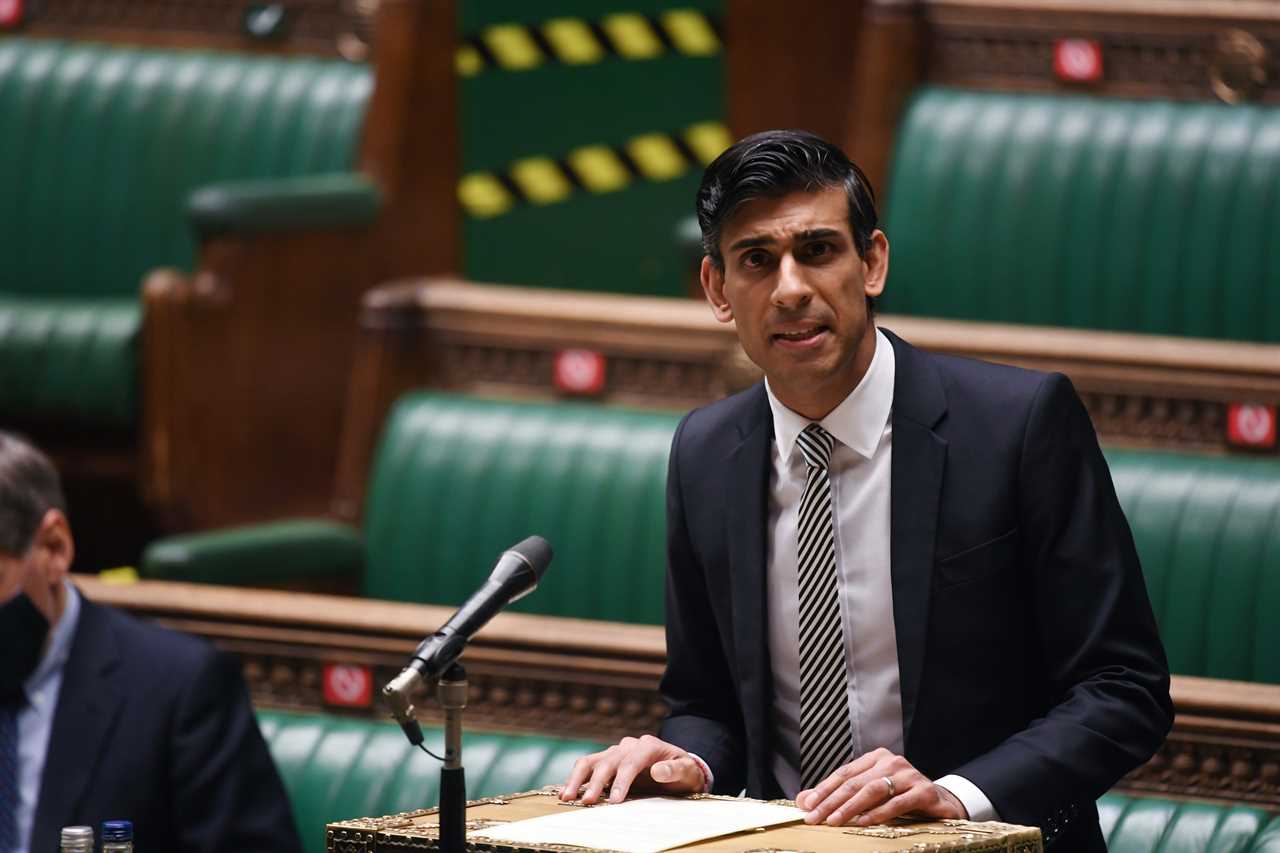RISHI Sunak has rejected a proposal for an emergency wealth tax to cover the £280 billion the Government has spent on the pandemic.
The Chancellor was presented with plans for a one-off levy – which would tax Brits with assets of more than £500,000.

But Rishi Sunak has rejected the idea, because it would be “un-Conservative” and go against Tory values.
The Wealth Tax Commission proposed the 5 per cent levy on housing, pension, business, equity and savings wealth last month, and forecasted that it would raise £260billion.
The levy would tax UK residents with assets worth half a million pounds or more – including their homes and pension.
While around 8.2 million Brits would have to pay the fee, the tax would mainly fall on older generations who have larger pensions.
And an estimated 10 per cent of those liable to pay would be “asset-rich, cash poor” meaning they wouldn’t have the money up front.
Lord O’Donnell, a former head of the Civil Service, said in the report’s introduction: “It is broadly accepted that if the Prime Minister is to stand by his promise not to return to austerity then taxes will eventually have to rise.
“This will mean breaking another manifesto commitment.
“Or it means thinking seriously about new taxes.”
Back in April, Labour leader Sir Keir Starmer insisted rich Brits will have to pay more taxes in future to pay for the coronavirus crisis.
He said that those who could pay more would have to – so Britain can pay back the vast amounts of money it’s spending to save lives and keep the economy afloat.
TAXING TASK
And earlier this month, campaigners piled on the pressure to reform inheritance and property taxes if the Chancellor is to recover the £280billion spent in response to the pandemic.
There have also been calls for the stamp duty holiday to be extended beyond March 31 – but it is unclear whether this is something which can be extended.
It was revealed today that the UK economy shrank by 2.6% in November after England was placed in lockdown for a second time, according to official figures.
But the numbers from the Office for National Statistics were better than the 5.6% slump that had been expected.
November’s decline came after six consecutive months of growth, with a 0.6% improvement in October.
The UK gross domestic product is now 8.5% below its pre-pandemic peak in February 2020.
Experts are warning the UK faces a possible double-dip recession once the true impact of a third national lockdown on the economy is revealed.
A double-dip is recession when the economy shrinks, briefly recovers, and then enters recession again.
Chancellor Rishi Sunak said: “It’s clear things will get harder before they get better and today’s figures highlight the scale of the challenge we face.
“But there are reasons to be hopeful – our vaccine roll-out is well underway and … we’re creating new opportunities for those most in need,” he added.
This comes as daily Covid deaths today exceeded 1,000 for the fourth day in a row as infections rose by 55,761.
The total number of people who have lost their lives to the bug in Britain is now 87,295 after 1,280 fatalities were reported today.
Today’s rise in deaths is slightly smaller than it was last Friday, when 1,325 fatalities were reported.
But it follows a trend of high numbers all week, with the past four days each seeing more than 1,000 people die from the virus in Britain.
Wednesday saw the deadliest day of the pandemic after 1,564 more people died in the highest daily death toll so far.
And thousands more cases were recorded today than yesterday.






